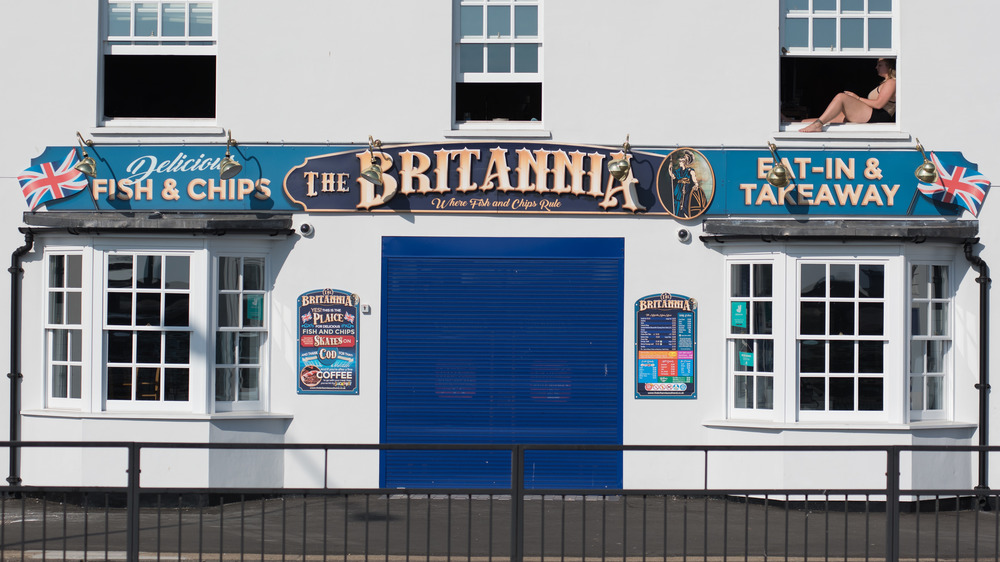The Real Difference Between English Fish And Chips And Scottish Fish And Chips
Fish and chips is one of the classic British dishes with which even we Yanks have a passing familiarity. Roly-poly, black pudding, jellied eels, and spotted dick are all things we've yet to be introduced to, nor are we sure we really wish to make their acquaintance. Fish and chips, though – sure, isn't that the stuff they serve at Long John Silver's? Well, not if you're lucky. Fish and chips, done right, is a dish that's fit for a queen. Quite literally, in fact, as it features on HRH's royal menu every Friday night.
If you're truly in the know, you may already be aware that the best fish to use for fish and chips is either haddock or cod and that the only acceptable condiment is – NO! not tartar sauce, and definitely not ketchup! – vinegar, preferably of the malt variety. You may even know that the proper "chips" for this dish would be thick British-style ones akin to steak fries. But did you know that Scotland, aka England's Canada (except for the whole technically being part of the same nation thing), has its own spin on this most British of foods?
Scotland's capital city prefers a different condiment
While Scotland may want to claim the distinction of being the first to invent fried fish and potatoes, there seems to be a preponderance of evidence pointing to an English origin for the dish. Charles Dickens' Oliver Twist, published in 1839, makes reference to a London "fried fish warehouse," while the first Scottish chippy seems to have opened in Dundee, Scotland some four decades later (and was operated by a Belgian immigrant, to boot).
The fish and chips served in Edinburgh is easily distinguishable from the English version or even the one served throughout the rest of Scotland. Instead of serving the fish with vinegar alone, they opt for a mixture of vinegar or water and brown sauce, the latter being a British condiment similar to a thick Worcestershire sauce. This fish topper, which is augmented with plenty of salt, is known as "chippy sauce." Yet one more thing you may find at a Scottish fish and chip shop that might not be on the menu south of Hadrian's Wall is Scotland's most notorious contribution to culinary history since the much-maligned haggis: the deep-fried Mars bar. According to a 2004 survey, nearly a quarter of Scotland's chippies sold this artery-clogging delicacy. Wow, fried main dish, vegetable side, and dessert all in one place! All they need is some sticks, a midway, and a few farm animals and they've got themselves a good old All-American state fair right there.

